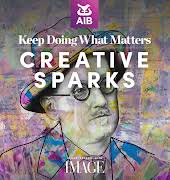By Sinead Brady
03rd Dec 2017
03rd Dec 2017
Like it or loathe it, learning to navigate the minefield that is office politics is a workplace skill you must master. Doing so is always challenging, but particularly when starting a new job or transitioning into a new role. No matter where you sit on the organisational chart, coming to grips with the interpersonal relationships that exist in your workplace and managing them is a key component in designing your own career success.
What is Office Politics?
It might seem like an obvious question, however, when stripped back to its most basic principles, it is about understanding human behaviour and the relationship between people. At its worst, this knowledge is used as a strategy to gain advantage over others. It involves lying, manipulation, withholding information and idea theft. The list goes on but the outcome is always a negative and toxic work environment. However, at its best, understanding it holds the potential to build a safe workplace where you and your colleagues feel supported, appreciated and engaged. Relationships built on positive office politics are strong. Everyone gets to do their job while promoting themselves fairly, they remain professional and can manage those around them even when things are difficult.
Ground Rules
Practice self-control. Remember you have two ears, two eyes and one mouth, so listen and watch twice as much as you speak. By doing this you remain professional, courteous and maintain your integrity.
- Dodge water cooler gossip.
- Never assume confidentiality. In fact, you should always assume the opposite so act and speak to others accordingly.
- Avoid whining or complaining. Instead, focus your energy on actively voicing your opinion based on professional judgment that you have evidence to back up.
Understand formal & informal social networks
Once you have established your ground rules it’s time to figure out the lie of the land. This is particularly true if you are starting a new role and need to identify any legacy issues you inherited. Remember, the game that is office politics is based on an informal social network that usurps the organizational chart. So, to really get in tune with what is going on you need to listen and observe both the formal and informal social networks. Have patience, this takes time!
- Observe who speaks to whom. Is it a possibility there are romantic relationships between team members? Or other alliances?
- Watch out for friendship groups or cliques that operate in meetings. Consider their interaction with others and be aware of their behaviour leading up to group meetings.
- Keep an eye out for the real influencers and remember it may not be your boss or team leader. Have you spotted a manager or team leader who has a position of leadership but doesn’t exercise it?
- Is there somebody else without title who others go to for advice or mentorship? Does this person appear to be respected by others?
Quietly observing these formal and informal social networks within your organization will help you find your feet.
As you get to know your colleagues and co-workers, spend more time listening than talking and asking questions rather than answering them. Remember the less you say, the less you will regret later on.
Neutralise Negative Play
Once you have figured out the social network, consciously use this information for good. Actively promote yourself and others in a fair and honest way. Always remain authentic in this endeavor. Speak to and build relationships with people at all levels within your organization. Build relationships and alliances with those who hold both formal and informal social connections. Put in place a plan for yourself to avoid and counter their negativity when possible.
Be friendly with everyone but do not align yourself with one specific group. Build your relationships on trust and respect, not flattery or falsehoods. Start to connect with those who have informal power. Keep your finger on the pulse and always use your knowledge of the social network for good and positivity.
Navigating the choppy waters of office politics has become a necessary skill in the 21st-century workplace, whether we like it or not. Forging good relationships with those around you is a key component in designing a career that you love. So, before you wade into an office drama, be diplomatic. Watch, listen and learn before you act.
Good luck!
Sinead Brady is a career psychologist practising at A Career To Love.
Photo credit, Unsplash






















